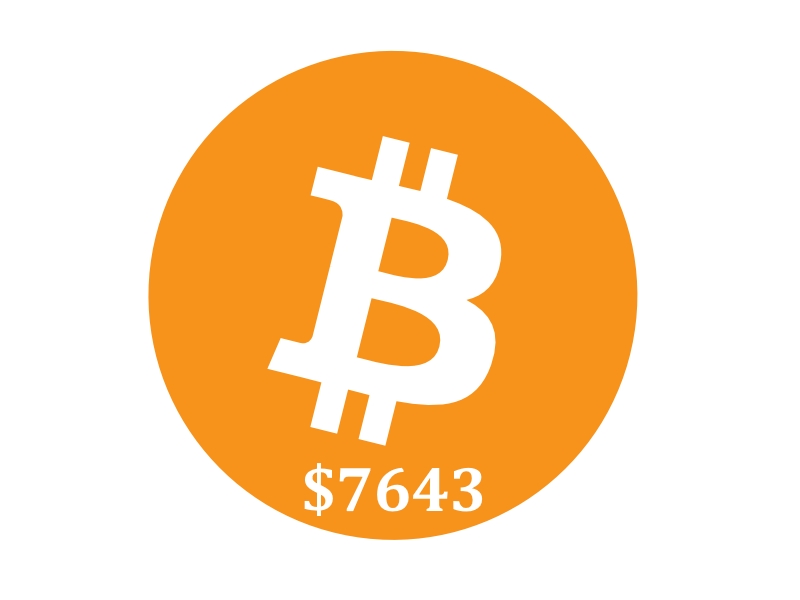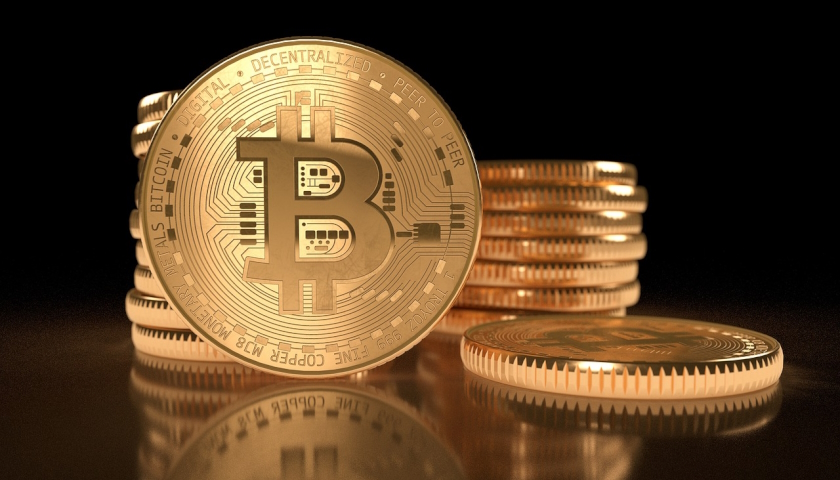Bitcoin whipsawed investors Friday, falling below $8,000 for the first time since November before recovering most of the day’s losses, as a miserable 2018 continued for cryptocurrencies. Investors are confronting a mounting list of concerns about the future of the industry.
Since reaching a record high of $19,511 on Dec. 18 shortly after the introduction of regulated futures contracts in the U.S., bitcoin’s value has fallen by more than half amid waves of negative news. Setbacks included escalating regulatory threats from authorities around the world including India, South Korea, China and the United States; a record $500-million heist at Japanese exchange Coincheck Inc.; fears of price manipulation; and Facebook’s ban on cryptocurrency ads.
Japanese authorities raided Coincheck’s offices Friday morning, a week after the robbery, hauling out documents and computers as evidence. The inspection was conducted to ensure security for users, Finance Minister Taro Aso said.
“Bitcoin is in trouble,” Lukman Otunuga, a research analyst at foreign exchange broker Forextime, wrote in a note Friday. “Price action suggests that bears are clearly in control, with further losses on the cards as jitters over regulation erode investor appetite further.”
The largest digital currency dropped as much as 16% to $7,643 before rebounding. Bitcoin was down 21% on the week. Rival coins ripple, ether and litecoin tumbled at least 28% as losses continued to spread across cryptocurrencies.
Nouriel Roubini of Roubini Macro Associates said that bitcoin is the “mother of all bubbles,” and that the bubble is now bursting, speaking in an interview on Bloomberg Television. He said “virtually every” Group of 20 country is talking about cracking down on the phenomenon as policymaker worries grow.
Meanwhile, a growing number of big U.S. credit-card issuers are deciding they don’t want to finance a falling knife.
JPMorgan Chase & Co. and Bank of America Corp., the nation’s two largest banks, said they’re halting purchases of bitcoin and other cryptocurrencies on their credit cards. JPMorgan, which is implementing the ban Saturday, doesn’t want the credit risk associated with the transactions, a spokeswoman said.
Bank of America started declining credit card transactions with known crypto exchanges Friday, according to a memo to staff. The policy applies to all personal and business credit cards issued by the bank. The move doesn’t affect debit cards, a bank spokeswoman said.
Allowing purchases of cryptocurrencies can create big headaches for card lenders, which can be left on the hook if a borrower bets wrong and can’t repay. And banks are required by regulators to monitor customer transactions for signs of money laundering.
But cutting off card purchases has big implications for Bitcoin and other virtual currencies, potentially making it more difficult for an enthusiastic public to jump into that market.
Citigroup Inc., the nation’s third-biggest bank, is still reviewing its policy. Capital One Financial Corp. and Discover Financial Services previously said they aren’t supporting the transactions.
Also on Friday, Long Blockchain Corp. took a step back from crypto — only about six weeks after getting into it.
The company formerly known as Long Island Iced Tea announced that it will not be acquiring bitcoin mining equipment that it was previously set to purchase. Instead of buying more than 1,000 mining rigs, it said, it will focus on completing a merger with Stater Blockchain Ltd., a British firm that develops technology to power digital-currency transactions.
The move is the latest change of direction for the company that came to epitomize the zaniness of the microcap rush to rebrand to cash in on the crypto craze. Long Blockchain’s stock value almost quadrupled when the company changed its name Dec. 21, three days after bitcoin hit its record of $19,511.
The stock is down more than 50% since its peak, though Friday’s announcement lifted it 2.3% to $3.11.
The slump in bitcoin prices that has been weighing on the company’s shares also affects the risk-reward balance of placing bets on mining. With the digital coin’s price at lows for the year and regulatory scrutiny on the up, investing in expensive rigs may not pay off in the near term.
Long Blockchain said buying the machines was just one of its strategic options. “We will continue to evaluate the purchase of mining equipment for bitcoin and other digital currencies as part of our larger blockchain initiative,” said Shamyl Malik, head of the LBCC’s Blockchain Strategy Committee.
But if the company is depending on bitcoin posting a 1,400% gain like it did in 2017, its options may be limited.
Source: latimes.com




